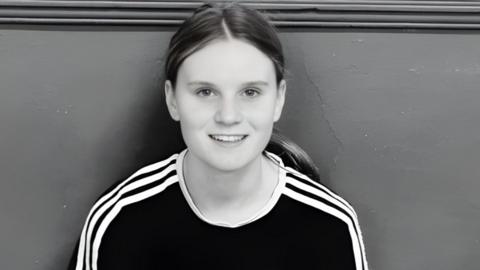The mother of a teenager killed by her ex-boyfriend fears others are likely to die if more is not done to tackle abuse and violence in young people's relationships.
Holly Newton's mother Micala Trussler voiced her concerns in response to a new survey suggesting 49% of teenagers in a relationship in the last year have experienced violent or controlling behaviour from their partner.
"My biggest fear is if children can't access the support they need that they're then going to end up in the same position as Holly and potentially be murdered," she warned.
Jess Phillips, minister for safeguarding and violence against women and girls, described the results of the Youth Endowment Fund (YEF) survey as "heartbreaking and deeply concerning".

